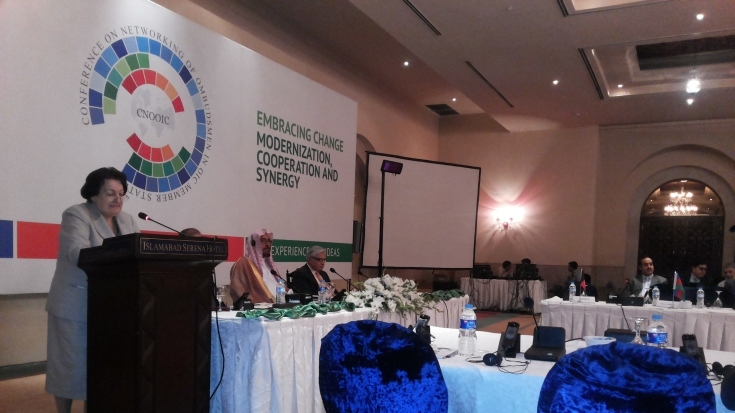In February 2014, Rab Nawaz, a retired employee of Pakistan Railways (PR), passed away, while in dispute over not receiving any pension payments despite retiring six months ago. Similar issues of delayed/non-receipt of pensions have been faced by other retirees of PR – it owes Rs.800 million a month to its 144,000 retirees.
The Federal Ombudsman (FO) took notice of the case and investigated the causes of delay in pension payments, finding that weakness in internal controls, absence of a viable monitoring mechanism, and lack of supervisory checks were the main reasons. Last month, the FO ordered Pakistan Railways to computerize service records by the end of the year, maintain a proper record of retirees, introduce a direct credit system through banks, and appoint a focal person to timely finalize pension cases. The directives are currently being implemented.
Likewise, the Federal Tax Ombudsman (FTO) has taken several decisions on cases against public maladministration, majority (about 80%) of which are in favor of complainants.
The above case illustrates the importance of such grievance redress systems as pillars of good governance, providing foundations for accountability and delivery of public services. When effective, they not only help ensure administrative accountability related to public services, but also advocate for citizens’ rights. The ombudsman institution’s (OI) power of persuasion and force of investigation are considered powerful tools, especially because this power originates from the citizens – the poor and marginalized. Their role is particularly important in fragile states that may not have a long history of democratic rule of law; in minimizing conflict.
Pakistan has 12 independent ombudsman institutions representing general and specific mandates at both federal and provincial levels, such as taxation, workplace harassment, insurance and banking. All of them are members of the Forum of Pakistan Ombudsman (FPO) – a non-political network, operating for the advancement of good governance across Pakistan by sharing knowledge, building capacity for institutional effectiveness and raising awareness about these institutions.
The promulgation of the Ombudsman Institutional Reform Act 2013 gave OIs administrative and financial autonomy, and provides a strong framework to support effective implementation of Ombudsman’s decisions.
The Federal Ombudsman (FO) has processed about 1.07 million complaints over the course of its 30-year existence, including some high profile cases (e.g. maladministration causing an outbreak of measles; extraordinary delays in issuing Machine Readable Passports; and the nonpayment of pensions). Last year, the FO decided 64,000 cases, of which less than 1% complainants have filed review petitions, and the implementation rate on decided cases stands at 90%. Though complaints are received from both genders however, only 11% are from women. Sector-wise, the majority are from Water and Power Development Authority, Sui-Northern Gas Pipelines Ltd., Pakistan Telecommunications Company Ltd., and Allama Iqbal Open University.
However, there are still significant weaknesses in these institutions. The biggest is low capacity, making it difficult to implement the new law as the institutions are not being able to meet the performance standards, lacking necessary human and technological resources to address complaints.
Another is a lack of awareness among the general public about the OIs. This results in less than potential complaints being submitted, especially from marginalized segments of society who can benefit most from this accountability system.
The World Bank is providing support to all members of the FPO through an Institutional Development Fund (IDF) Grant, to establish partnership amongst all OIs on a shared vision and bring in innovative technological interventions that can help them develop into strong independent institutions, scaling down the litigation burden of the courts and improving administrative accountability of public services.
The expected outcomes of the support include: better handling of complaints (reduction in average days of processing complaints by 80days), an increase in service beneficiaries (30% from the services of selected institutions), and greater citizen satisfaction (measured by conducting citizens report card).
Another key aspect of World Bank support is connecting FPO members with international ombudsman institutions for knowledge sharing and support. Pakistan is a member of the Asian Ombudsman Association, and International Ombudsman Institute. It also recently hosted the first-ever Conference of Ombudsman from Organization of the Islamic Conference (OIC) member countries last month in Islamabad.
The main objective of the conference was to facilitate networking of ombudsman institutions of OIC member countries, along the lines of other international ombudsman associations. The participants included ombudsman from 23 countries, Ambassadors of those countries to Pakistan, and representatives of other international organizations. The conference was inaugurated by the President of Pakistan, Mamnoon Hussain. Participants agreed to establish an Ombudsman Association of OIC member countries, with its first Secretariat housed in Islamabad, Pakistan. The Speaker of the National Assembly of Pakistan, Mr. Sardar Ayaz Sadiq, also participated, assuring the support from National Assembly for the forum, and welcomed suggestions for legislation for accountability and parliamentary oversight. The event was instrumental in creating awareness about the accountability role and services of ombudsman institutions.
Ombudsman institutions can act as gateways for citizens into governments, providing prompt and speedy relief to customers. These efforts seek to strengthen these pillars of good governance in Pakistan, by tapping the potential of these institutions to investigate administrative malpractice, and mediate conflict, overall building better trust between citizens and the state.

